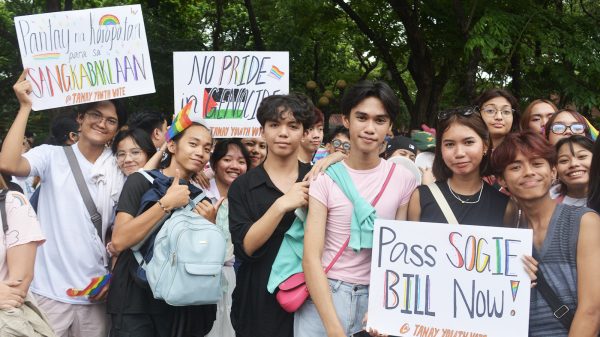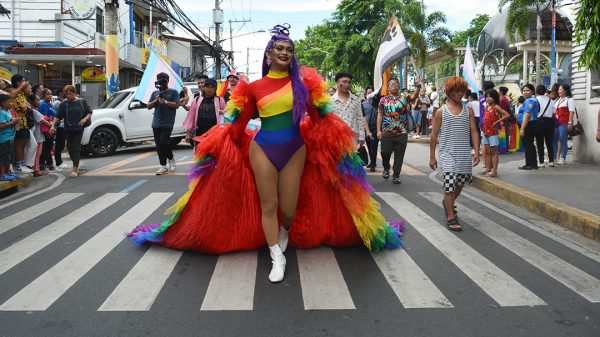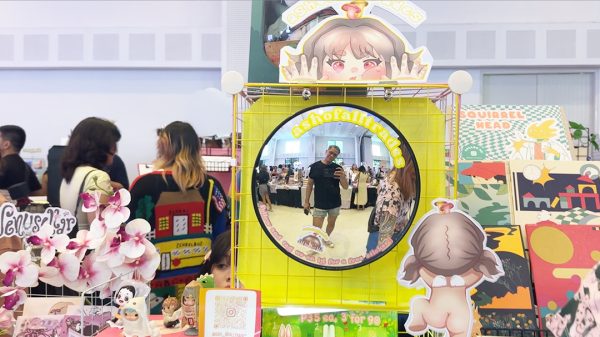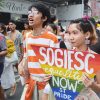This is part of #KaraniwangLGBTQIA, which Outrage Magazine officially launched on July 26, 2015 to offer vignettes of LGBT people/living, particularly in the Philippines, to give so-called “everyday people” – in this case, the common LGBTQIA people – that chance to share their stories.
As Outrage Magazine editor Michael David C. Tan says: “All our stories are valid – not just the stories of the ‘big shots’. And it’s high time we start telling all our stories.”
“We’re human; you’re human. Let’s be humane,” said Reyel Xavier Inocencio in the vernacular. “We do not have to understand (SOGIESC) concepts to be respectful of others… We’re (also) human beings (and) we should be accorded the equal rights that cis-hetero people have. We’re no different.”
Looking back, Reyel – now 26 years old, and was born and raised in Malolos, Bulacan – knew that “from the beginning, when I was five years old, I really felt that I was different from everyone else. I (felt) out of place in this very binary system.”
From the start, “I (felt) that my body was different from who I was, who I am, and becoming,” Reyel said. “I just didn’t have the proper label for it because when I was growing up I only had the concept of ‘bakla‘ and ‘tomboy‘. So growing up, I was just different; I was not a lesbian.”
In a way, though, since “I was born a premature baby (delivered at seven months),” he said, “from the get-go, my life has been an adventure.”
He now identifies as queer transgender masculine non-binary, with his lived pronouns he/him/his.
“If you would say I’m not passable as a man, that’s okay (too, since) I don’t want to be boxed in the standards of masculinity or manly,” Reyel said, adding that this is also why he stopped referring to himself as “trans man”. “The society’s expectation of what masculinity is, is really choking/stifling.”

COMING OUT
Reyel’s coming out was not “explosive.”
“My parents were 100% onboard,” he said, adding that they never took anything against him since it was “something they knew from the start.”
As the youngest child (and a premature child at that), Reyel’s life was sheltered. But he remembers that while growing up, his actions, his toys, the games he played, and the clothes he wore were traditionally identified to be “masculine.”
“From the get-go, they knew, even if they didn’t have a label for it” he said. “So when I came out as trans, it was (not a) big deal. All throughout, they realized that ‘Reyel is a unicorn, we shouldn’t prohibit him from being himself’.”
Outside the home, though, the reactions varied.
People in the community – e.g. Reyel’s classmates – for instance, initially had this thought that he’s a “hard butch lesbian”, even if “I never identified (as such). I never looked at myself as… a woman.”
Reyel had to come out via social media, in fact.
After studying Bachelor of Mass Communication (Major in Broadcasting) at Bulacan Collections, Reyel worked in government for a year. And while there, he noticed that “the government is not as accepting yet when it comes to (diverse) identities.” As such, he said he was susceptible to discriminatory practices – e.g. when bosses regularly misgendered him – and this led to his resignation.
Eventually, Reyel found himself working for LGBTQIA organizations – e.g. as Head of External Affairs at Transmasculine Philippines; Deputy Executive Director for Programs at Pioneer FTM; and consultant at Rainbow Rights Project, Inc. All while studying Juris Doctor (J.D.) at Arellano University School of Law.
FOCUS ON EDUCATION
To combat the “fear of the unknown,” Reyel thinks educating people is key.
“Honestly, most people only know ‘L’ and ‘G’ (in the LGBTQIA acronym),” he said. “(The ‘T’ is) a different spectrum. So I believe we can educate people; that SOGIESC is included in basic education.”
Reyel lamented that even within the LGBTQIA community, the concepts are still not properly understood – e.g. some people still assume that trans men are lesbians who “leveled up”.

BIGGER ISSUE: PATRIARCHY
That the misconceptions even within the LGBTQIA community do not help at all goes without saying.
Gay people, for instance, can be the very first people who do not understand transgender issues. “Their own prejudices surface,” Reyel said, adding that “just because you’re part of the LGBTQIA community, you’re already exempted from transphobia and/or homophobia.”
With the hate crimes done against LGBTQIA people – e.g. trans murders – “it gives that chilling effect that one day, we may be in the next headlines of news (related to trans killings),” he said.
But there is also a need to understand that these did not happen overnight.
“This is systemic,” he said. “(The hate started) with the parents who teach their children what’s right or wrong.”
This is why, for Reyel, members of the LGBTQIA community need to see Pride as a protest.
“We just see what’s on the surface; that it’s something enjoyable, something (like some) concert,” he said. “But that is privilege. We’re forgetting that the problems of the LGBTQIA community are intersectional.”
For Reyel: “When liberation happens, it is not only one part of a community that’s liberated. Everyone in the LGBTQIA community gets liberated.”
This is also why, for Reyel, there is a need for collective action, since “if you’re alone, nothing will happen.”
Reyel stressed: “We need to be united. We need to pinpoint the real enemy; and that’s the patriarchal society.”

FINDING ONESELF
For younger trans people, Reyel said that they need to learn to be themselves. “Do not be afraid to show your true colors. Do not be pressured even by other trans people to change who you are; to do as others do. Do what’s comfortable for you. Being transgender doesn’t mean you have to appear cisgender. There (should be) no pressure to pass.”
With the efforts he does, though, Reyel hopes that the younger LGBTQIA people will have a more peaceful society. “They’d benefit from what we’re doing,” he said.
This is why, for Reyel, finding Pride is an ongoing process.
“It (doesn’t only happen in) June,” he said. Throughout the year, “the LGBTQIA community should be respected. If you just surface for Pride in June, it means you just want to profit from us. Hopefully (in the long run) you see us as humans.”

























































